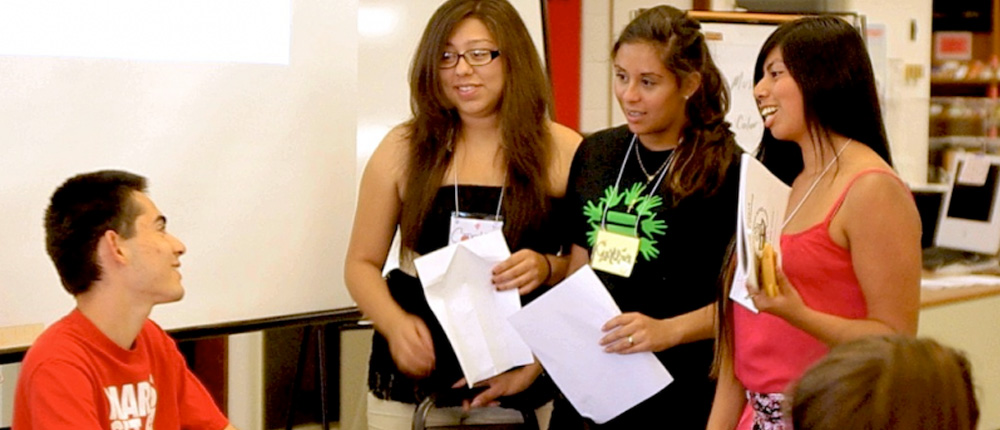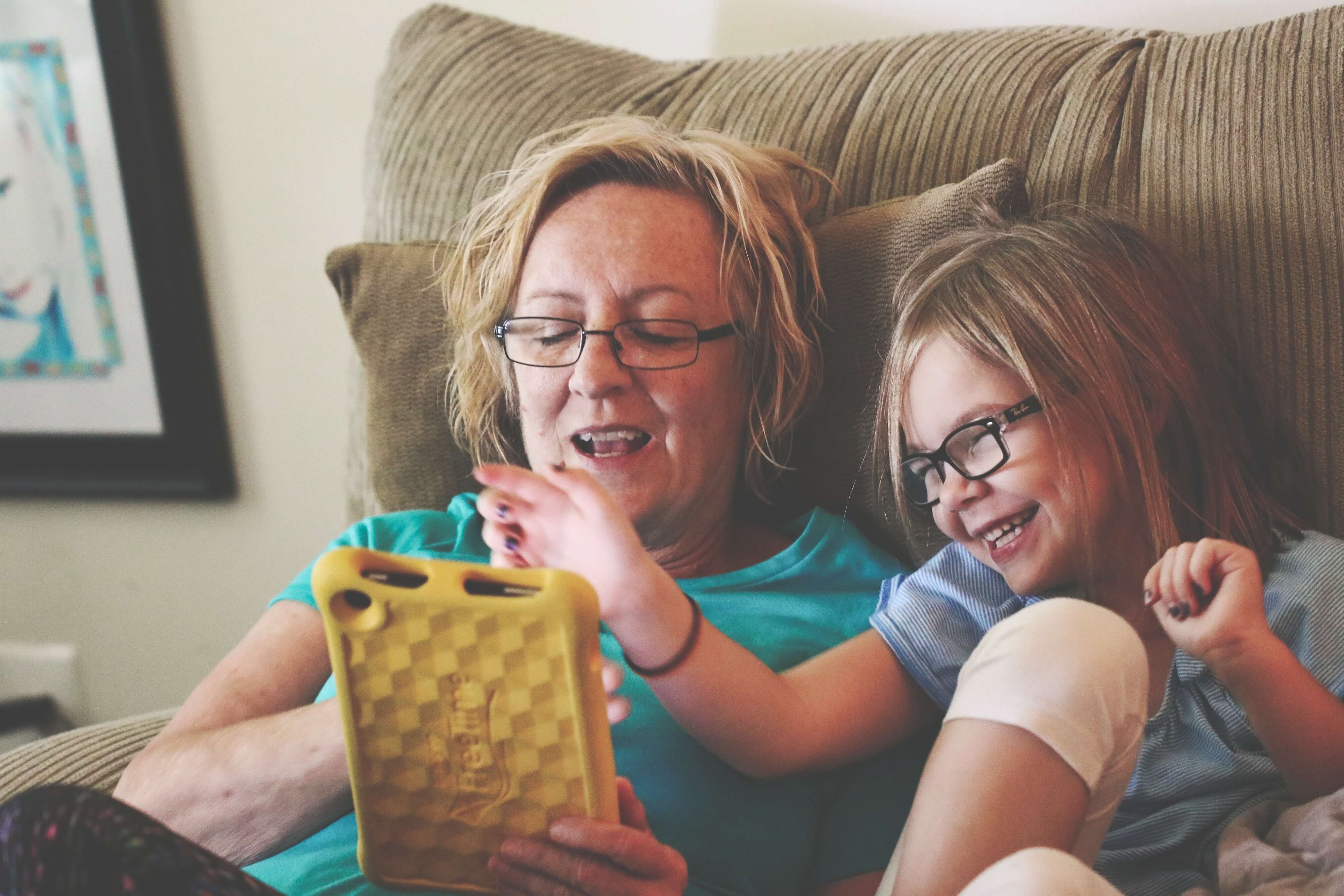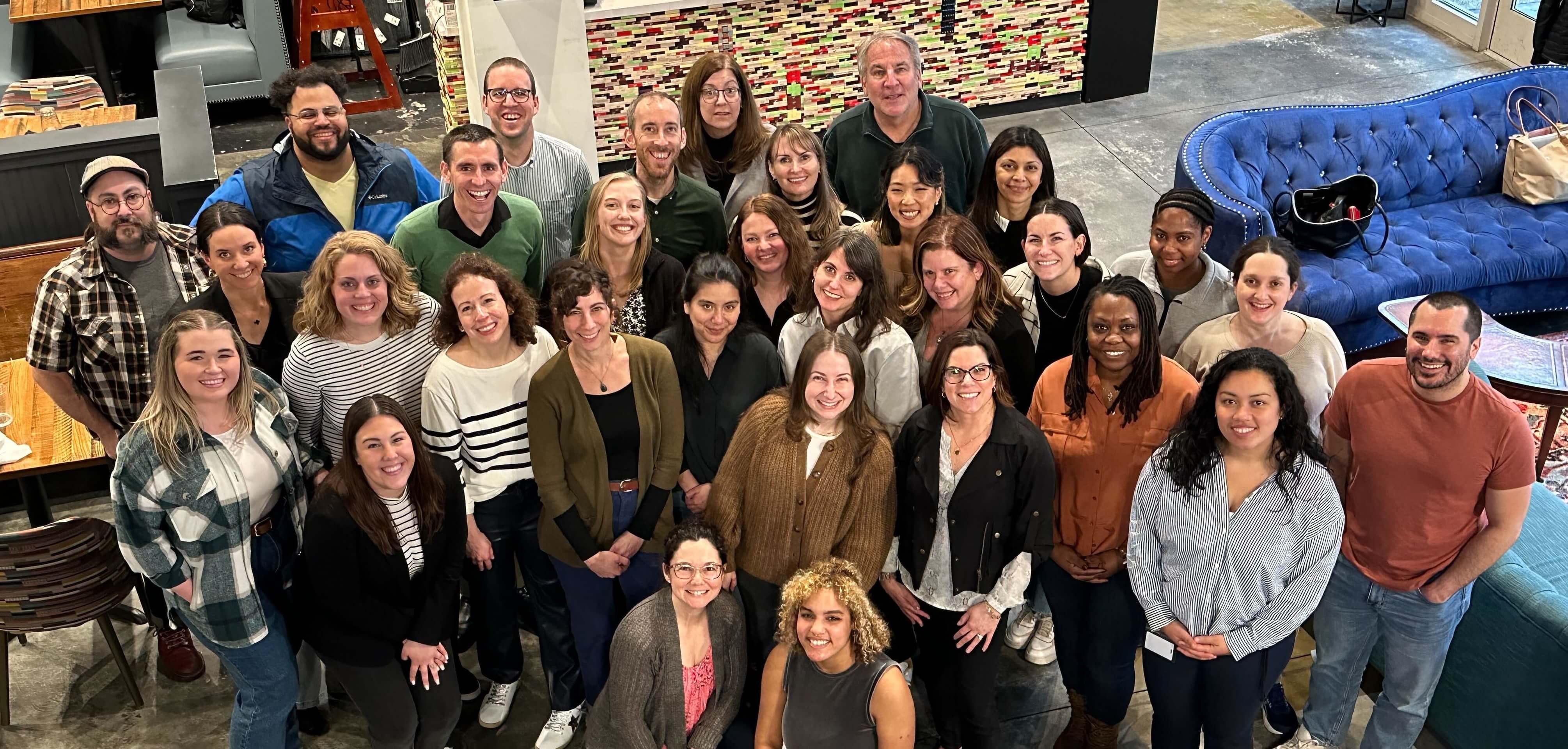Decision Education Eases the High School Transition

Spotlight on the StrongStart Program from Decision Education Foundation
Why the High School Transition Matters
When you started high school, you probably given little more than a school map, a course selection guide, and expectations to adjust. However, researchers and educators are starting to take note that incoming freshmen face new demands in their social lives, schedules, and academics. That stress can put them at risk for poor attendance and falling behind on the credits they need to graduate. According to the Building & Sustaining Student Engagement project at the University of Nebraska, research has shown that “a smooth transition to ninth grade contributes to students’ success in high school and beyond,” which indicates that they need more than a packet of reference information on the first day.
That’s why Decision Education Foundation (DEF), a nonprofit based in California that works with partners around the country, developed StrongStart, an orientation program for incoming high school freshmen that focuses on building community connections, self-awareness, and leadership through decision skills training. Students learn frameworks for choosing classes, exploring extracurricular opportunities, and navigating social situations.

Chris Spetzler, Executive Director of DEF, explained the urgency for teaching decision skills to incoming freshmen. “Ninth grade is the key year when students make a lot of decisions that set their trajectory in high school. They have more independence, which they do not always handle well, so this makes it a great opportunity to help the students and respond to a need that teachers and administrators recognize,” he said.
Elements of Successful High School Transition Programs
StrongStart has been an enjoyable learning experience for students because it balances multiple elements of successful transition programs identified by researchers, Decision Education concepts, and a camp-like atmosphere. Students who participated in the program at high schools in and near Eugene, Oregon said they felt better prepared for high school and — not to be trivialized — that they had fun. Indications are that their participation may have also helped increase their GPAs and the number of credits they completed during ninth grade.
StrongStart has been successful in part because students like the experiential lessons that prepare them to identify their values and generate creative alternatives when they face decisions. But the students have to be there in the first place to engage with the material, so working with feeder middle schools has been an important way to recruit students to participate.
Enlisting rising seniors to act as mentors has made the experience even more valuable. “Older students have more credibility and influence with younger students than adults will ever have,” Spetzler said. “The freshmen respond very positively to the mentors, who make sure they are on track and having a good time.” It’s a highlight when the seniors talk about what they wish they had known when they started high school and acknowledge the decision skills they’re still refining, like organization, time management, and weighing tradeoffs. Spetzler recommends that leaders of transition programs recruit a group of student mentors that represents a wide range of experiences. “You’d like for every freshman to see someone in the group that they can relate to,” he added.
Scheduling StrongStart to run over a week in the summer is another factor that has made it possible for students to get a deeper understanding of the decision skills they’ll need to navigate high school. “The school year is packed,” Spetzler acknowledged, “and creating something that adds skills before the school year begins means that we’ve created space to demonstrate the value of our program and advance relationships at the school.”
However, for schools that make the time, StrongStart lessons are an appropriate fit for the curriculum during the school year too. Spetzler is looking forward to an opportunity this fall to work with partner schools on a Ninth Grade Success class that will reach all incoming freshmen and use decision skills as the lens through which the students explore personal, academic, and career effectiveness.
Get StrongStart at Your High School
Decision Education Foundation is recruiting partner schools to run the StrongStart program for students transitioning from middle school to high school. To help educators with their own transitions into introducing Decision Education at their schools, DEF provides all program curriculum and materials and trains teachers how to deliver them, shares best practices for recruiting students, and provides ongoing support. And there’s more good news: new partner schools receive a $5,000 financial grant to pay for the cost of delivering the program.
To learn more about StrongStart and DEF’s programs visit www.decisioneducation.org or email Executive Director Chris Spetzler at chris@decisioneducation.org.
Founded in 2001, Decision Education Foundation is a nonprofit organization with the objective of fostering decision skills in young people: critical thinking, creativity, communication, and collaboration.
Photos provided by Decision Education Foundation.

